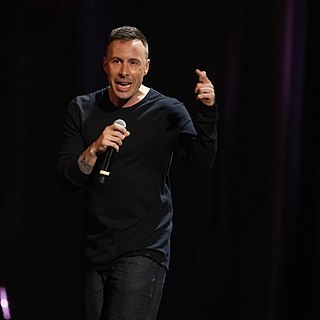A Quote by Daniel Bruhl
The key is to let computers do what they are good at, which is trawling these massive data sets for something that is mathematically odd. And that makes it easier for humans to do what they are good at - explaining those anomalies.
Related Quotes
You can harvest any data that you want, on anybody. You can infer any data that you like, and you can use it to manipulate them in any way that you choose. And you can roll out an algorithm that genuinely makes massive differences to people's lives, both good and bad, without any checks and balances.
Men and machines are good at different things. People form plans and make decisions in complicated situations. We are less good at making sense of enormous amounts of data. Computers are exactly the opposite: they excel at efficient data processing but struggle to make basic judgments that would be simple for any human.
Eventually, we need to have computers that work differently from the way they do today and have for the past 60-plus years. We're capturing and generating increasingly massive amounts of data, but we can't make computers that keep up with it. One of the most promising solutions is to make computers that work more the way brains work.
In the past, Google has used teams of humans to 'read' its street address images - in essence, to render images into actionable data. But using neural network technology, the company has trained computers to extract that data automatically - and with a level of accuracy that meets or beats human operators.




































